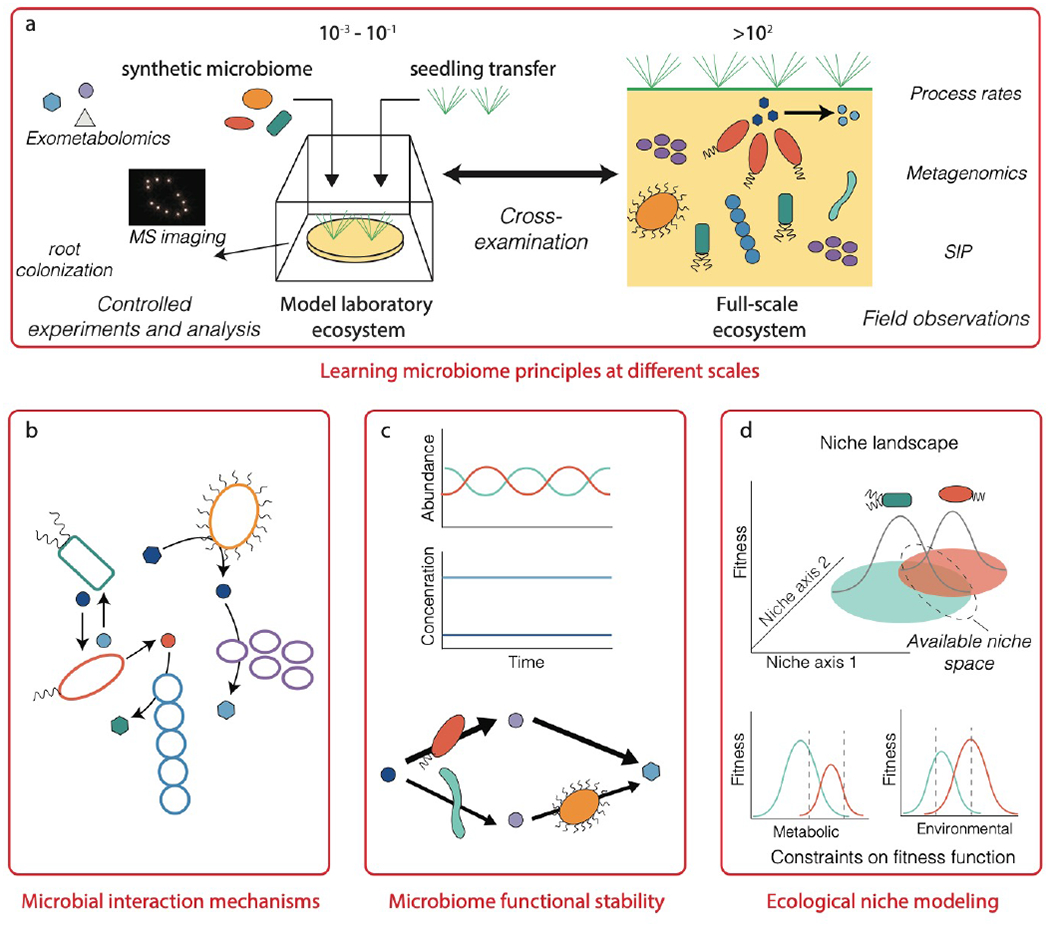Figure 5.

Learning fundamental principles for microbiome engineering. (a) Model laboratory ecosystems can be used for controlled experiments with simplified microbiomes and environmental properties, representing an in-between of pure lab conditions (such as test tubes or flasks) and complex natural environments (such as soil or the ocean). Continuous cross-examination between laboratory-scale models and natural complex ecosystems will be needed for developing engineering principles and practices that are robust in real systems, while also tractable in the lab. This will require close collaboration between multiple stakeholders, including researchers and end-users (such as hospitals or treatment plants) that have expertise and experience with issues specific to each scale. Key principles that need to be learned to enable systematic microbiome engineering are microbial interaction mechanisms, mechanisms governing functional stability and degeneracy, and frameworks for quantitatively mapping and simulating ecological niches in complex ecosystems.
